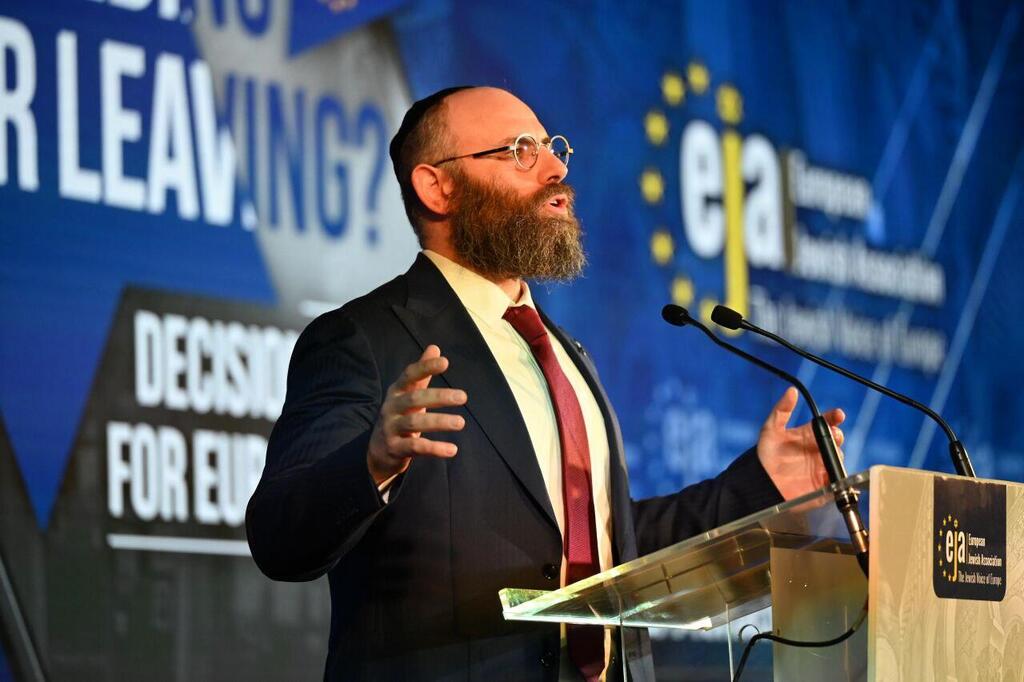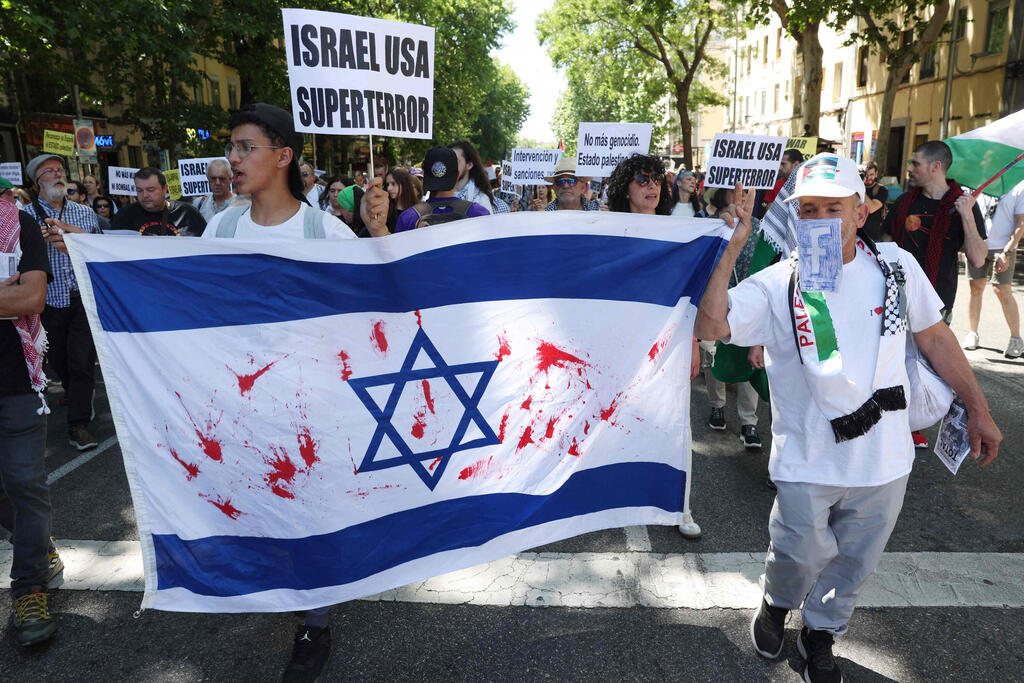Getting your Trinity Audio player ready...
Nearly one in three young Europeans has encountered antisemitic rhetoric disguised as political activism, according to a new survey published Monday by the European Jewish Association (EJA).
The findings, released at the EJA’s annual conference in Madrid, also show that 65% of Europeans believe the Israeli-Palestinian conflict contributes to antisemitic sentiment in their countries. Nearly half say media coverage of the conflict negatively impacts Jewish communities.
Spain and Belgium were identified as the most hostile environments for Jews in Europe, while the United Kingdom was ranked as the most supportive. The conference, titled “Build or Leave? The Decisive Moment for European Jewry,” comes amid rising concerns over antisemitism across the continent.
Speaking at the event, attended by more than 150 Jewish leaders, decision-makers and representatives of civil society, EJA Chairman Rabbi Menachem Margolin called on European governments, institutions and universities to immediately adopt, legislate and enforce the International Holocaust Remembrance Alliance (IHRA) definition of antisemitism, to impose harsher penalties for antisemitic hate crimes, to combat incitement in the media and on online platforms and to ensure police protection for Jewish communities.
During the presentation of the survey, Rabbi Margolin emphasized: "Anti-Zionism and antisemitism are two sides of the same coin. Europe is importing hatred, and the Israeli-Palestinian conflict and the events of October 7 served as a catalyst. The result is a new wave of anti-Jewish narratives spreading rapidly across cities on the continent. Most political leaders, university presidents and the media continue to avoid addressing this issue – and as long as they remain silent, antisemitism becomes normalized and the price paid by European Jews continues to rise."
Key findings of the survey
Young Europeans are absorbing and amplifying hatred
- 28% of Europeans aged 18-24 have participated in or been exposed to antisemitic statements disguised as criticism of Israel. These incidents occur most frequently in the workplace (48%), followed by conversations with friends and family and in public and digital spaces.
- 65.4% of Europeans believe the Middle East conflict has influenced public perceptions of Jews in their countries.
- 55% claim that perceptions of Jews have worsened, particularly in France and Germany.
- The data illustrates how an external conflict becomes a local powder keg.
- 20.4% of Europeans explicitly blame Jews in their own countries for the war, with Spain showing the highest percentage at 24%, the highest among the six surveyed countries.
Media's role, Jews pay the price
- 49.3% of respondents believe that media coverage of the Israeli-Palestinian conflict harms local Jewish communities. This sentiment is especially strong in the Netherlands (62.6%) and Germany (52.3%).
- Personal Security: Public Support Grows, But Governments Fail to Act
- Despite the scope of the threat, political responses remain weak: only 18.4% of Europeans view antisemitism as a national priority.
- However, when the issue is framed as one of personal security and civil protection, support rises to 40.3%.
- Among supporters: 70.8% favor increased security for Jewish communities, and 66.9% support expanding education efforts.
Which countries protect European Jewry and which fall short?
The survey ranked six countries by the level of support and security they provide to Jewish communities, revealing a divided continent:
- United Kingdom – The most supportive country for Jews: 48% of the public supports government action against antisemitism, there is a low rate of blaming Jews for the war, and Jews generally feel comfortable.
- France – A divided country: While it opposes antisemitic accusations, it also attributes significant responsibility to Israel, which increases discomfort among the country’s Jewish population.
- Netherlands – The public expresses significant concern about the media’s role in spreading antisemitism, but support for practical measures to combat it remains moderate.
- Germany – Aware of the problem but slow to respond: 52% of citizens see the media as exacerbating antisemitism, but the government does not prioritize the issue politically.
- Spain – Particularly troubling: The highest rate of blame placed on Jews, alongside a lack of public support for government action.
- Belgium – The most hostile country: High levels of alienation toward Jews and minimal support for government intervention.
Get the Ynetnews app on your smartphone: Google Play: https://bit.ly/4eJ37pE | Apple App Store: https://bit.ly/3ZL7iNv
The researchers behind the study concluded that Europe is on the verge of a moral collapse. According to them, geopolitical tensions are seeping into the continent’s social fabric, with Jewish communities being the first to pay the price. "The question is not what is happening – but whether governments will act before it is too late. Antisemitism is tearing apart the values that Europe claims to uphold," the researchers said.
Rabbi Margolin added: “Jews may be the first to suffer – but history teaches us they are never the last. Europe must act now: protect its Jews – or watch its values disappear.”
The survey was conducted by the European Jewish Association (EJA) with the assistance of Juan Soto, an expert on migration with extensive experience working with research institutes. This comprehensive survey included 4,400 respondents in a representative sample conducted by the leading European polling company IPSOS, across six Western European countries: France, Germany, the United Kingdom, Spain, the Netherlands and Belgium.




